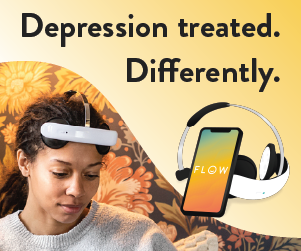Table of Contents
ToggleAre you experiencing brain fog after drinking alcohol? Understanding this phenomenon can help shed light on the cognitive difficulties you may be facing.
Brain fog after drinking is a common symptom of alcohol consumption.
It is characterized by cognitive difficulties, such as slowed thinking, impaired memory, lack of alertness, and difficulty completing tasks.
Alcohol-induced brain fog is thought to be caused by increased inflammation around the brain cells.
Key Takeaways:
- Brain fog after drinking is a common symptom of alcohol consumption.
- It is characterized by cognitive difficulties, such as slowed thinking, impaired memory, lack of alertness, and difficulty completing tasks.
- Alcohol-induced brain fog is thought to be caused by increased inflammation around the brain cells.
- Remedies for brain fog after drinking include taking care of physical health, practicing mindfulness meditation to destress, exercising the brain with puzzles, spending time outside to improve mood, and using cleansing regimens to remove toxins from the body.
- Cognitive impairments from chronic, heavy drinking may persist even after alcohol cessation.
Cognitive Impairment from Alcohol: The Symptoms
Brain fog after drinking alcohol can manifest through various cognitive impairments, affecting your ability to think, remember, and concentrate.
This phenomenon is often referred to as alcohol-induced cognitive dysfunction.
When experiencing brain fog, you may notice slowed thinking, making it challenging to process information quickly and efficiently.
You may also struggle with impaired memory, finding it difficult to recall recent events or details.
Completing simple activities may become more challenging, as decision-making and problem-solving abilities may also be affected.
| Common Symptoms | Description |
|---|---|
| Slowed thinking | Difficulty processing information quickly |
| Impaired memory | Trouble recalling recent events or details |
| Lack of alertness | Feeling drowsy and unfocused |
| Difficulty completing tasks | Challenges with decision-making and problem-solving |
If you experience these symptoms, it is essential to recognize that they are temporary and typically resolve within 24 hours after consuming alcohol.
However, chronic, heavy drinking can have long-term effects on cognitive function, potentially leading to persistent brain fog even after alcohol cessation.
Seek appropriate treatment for alcohol-related cognitive impairments to address underlying issues. This step is vital for supporting overall brain health.
Cognitive Impairment from Alcohol: The Impact on Daily Life
Brain fog after drinking can significantly impact various aspects of daily life. Simple tasks that were once effortless may become frustrating and time-consuming.
Concentration and focus may suffer, affecting performance at work or school. Memory lapses can make it challenging to remember important appointments or commitments.
Additionally, impaired decision-making abilities may lead to poor judgment or risky behavior, which can have serious consequences.
It is essential to understand and address these cognitive impairments to maintain overall well-being and ensure optimal functioning in daily activities.

The Science Behind Alcohol-Induced Brain Fog
Alcohol-related brain fog is believed to be caused by inflammation affecting the brain cells, leading to cognitive impairments.
When alcohol is consumed, it is metabolized in the liver, producing byproducts that can be toxic to the body, including acetaldehyde.
This compound has been shown to trigger an immune response in the brain, resulting in increased inflammation.
Inflammation can disrupt the normal functioning of brain cells, impairing communication between them.
This can lead to cognitive difficulties such as slowed thinking, impaired memory, lack of alertness, and difficulty completing tasks.
Additionally, alcohol-induced brain fog may be exacerbated by the depletion of essential nutrients, especially B vitamins, which are crucial for proper brain function.
Research suggests that chronic, heavy alcohol consumption can cause long-term damage to the brain, including structural changes and cognitive decline.
Heavy drinking over an extended period may result in a decrease in brain volume and a loss of gray matter, which is responsible for processing information.
It is important to note that alcohol-related brain fog can last up to 24 hours after drinking, but the extent and duration of cognitive impairments may vary depending on individual factors such as the amount of alcohol consumed, frequency of consumption, and overall health.
Effects of Alcohol on Brain Function
| Alcohol Consumption | Effects on Brain Function |
|---|---|
| Acute Intoxication | Impaired judgment, memory loss, decreased inhibitions |
| Chronic Heavy Drinking | Cognitive decline, structural brain changes, increased risk of neurodegenerative diseases |
| Brain Fog After Drinking | Slowed thinking, impaired memory, lack of alertness, difficulty completing tasks |
While brain fog after drinking is a common and temporary consequence of alcohol consumption, it is essential to be aware of its potential long-term impact on cognitive function.
By understanding the science behind alcohol-induced brain fog, individuals can make informed decisions about their alcohol consumption and seek appropriate treatment if needed.

Remedies and Prevention for Brain Fog After Drinking
To combat brain fog after drinking, there are several steps you can take, from prioritizing your physical well-being to engaging in activities that boost mental clarity.
Hangover brain fog and brain fog from excessive drinking can be alleviated by adopting healthy habits and implementing mindful practices.
Mindfulness Meditation
This ancient technique helps calm the mind, reduce stress, and improve focus.
By setting aside a few minutes each day to meditate, you can enhance your mental clarity and alleviate the cognitive impairment associated with alcohol consumption.
Find a quiet space, sit comfortably, close your eyes, and focus on your breath.
Allow thoughts to come and go without judgment, bringing your attention back to the present moment each time your mind wanders.
Over time, regular meditation practice can help clear the fog and restore cognitive function.
Brain-Boosting Activities
Engaging in activities that stimulate the brain can also help combat alcohol-associated cognitive impairment.
Try solving puzzles, playing memory games, or learning a new skill.
These activities challenge the brain, improve cognitive function, and enhance mental clarity.
Additionally, spending time outdoors and connecting with nature has been shown to have mood-boosting effects, which can contribute to overall cognitive well-being.
Detoxification and Self-Care
Supporting your body’s natural detoxification process is crucial for clearing the fog after drinking.
Ensure you stay well-hydrated by drinking plenty of water throughout the day.
Nourish your body with nutritious foods, rich in vitamins and antioxidants, to aid in the removal of toxins.
In addition, consider incorporating cleansing regimens or supplements that support liver health, such as milk thistle or dandelion root.
Prioritizing regular exercise, quality sleep, and stress management techniques, such as yoga or deep breathing exercises, can also contribute to a clearer mind and improved cognitive function.
| Remedies and Prevention Tips for Brain Fog After Drinking |
|---|
| Practice mindfulness meditation to destress and improve focus. |
| Engage in brain-boosting activities like puzzles and memory games. |
| Spend time outdoors to improve mood and mental clarity. |
| Take care of physical health through hydration, nutrition, and exercise. |
| Consider using cleansing regimens or supplements to support detoxification. |

Cognitive Impairment and Alcohol: Long-Term Effects and Treatment
While brain fog may last up to 24 hours after drinking, chronic, heavy drinking can lead to persistent cognitive impairments, necessitating treatment options to improve cognitive function and maintain sobriety.
Cognitive decline after drinking heavily over an extended period is a serious concern that can impact daily life, work performance, and overall well-being.
A study conducted by researchers at the University of California found that long-term alcohol consumption can result in structural and functional changes in the brain, leading to cognitive impairment.
The study revealed that individuals who engaged in heavy drinking experienced a decline in cognitive abilities, including memory, attention, and executive function.
It is important to note that seeking professional help and support is crucial for those experiencing cognitive impairments related to alcohol consumption.
The combination of medication, therapy, and ongoing support can provide individuals with the tools and resources needed to manage their addiction, improve cognitive function, and maintain long-term sobriety.
A Word from HealthyVibe
Wrapping up this post, let’s emphasize: that brain fog after drinking isn’t just something you have to accept.
The moment you drink, your cognitive health might waver, from slowed thinking to memory gaps.
Although researchers are still piecing together the exact causes, it’s clear that alcohol causes inflammation around our brain cells. But don’t despair! You can take proactive steps to combat this.
Prioritize sleep, hydrate thoroughly, and maintain a balanced diet. Engage in mindfulness practices, tackle brain-boosting puzzles, and spend time outdoors.
By making these informed decisions, you’ll bolster your cognitive health and reduce the chances of that dreaded fog. So, dear readers, make choices that keep you clear-headed and alert. Here’s to staying sharp!
FAQ
What is brain fog after drinking?
Brain fog after drinking is a common symptom of alcohol consumption, characterized by cognitive difficulties such as slowed thinking, impaired memory, lack of alertness, and difficulty completing tasks.
What causes alcohol-induced brain fog?
Alcohol-induced brain fog is thought to be caused by increased inflammation around the brain cells.
How long does the brain fog after drinking?
Brain fog can last up to 24 hours after drinking.
Can cognitive impairments from chronic, heavy drinking persist after alcohol cessation?
Yes, cognitive impairments from chronic, heavy drinking may persist even after alcohol cessation.
What are the remedies for brain fog after drinking?
Remedies for brain fog after drinking include taking care of physical health, practicing mindfulness meditation to destress, exercising the brain with puzzles, spending time outside to improve mood, and using cleansing regimens to remove toxins from the body.
How can alcohol-related brain fog be treated?
Treatment for alcohol-related brain fog may include medication and ongoing therapy to address underlying issues and maintain sobriety.










